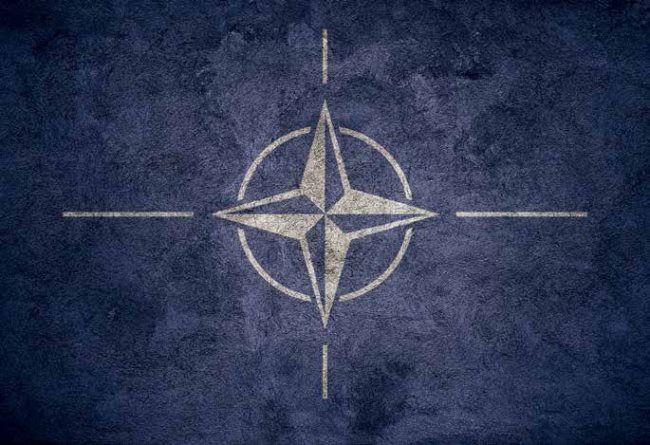The economic performance of a nation strongly depends on its ability to provide long-term security and stability. These prerequisites not only promote domestic economic activity, but they also increase the trust of a country’s investors and foreign partners, as well as foster a country’s integration into wider regional and international economic value chains. While the economic performance and prosperity of a nation are not the primary concern of NATO’s collective security, its direct function – the provision of security – has a major positive spillover effect on political and economic stability. Moreover, the process of approximation and eventual NATO membership complements the improved institutional frameworks of the economy, the rule of law, efficient governance systems, and a country’s corporate security. It also decreases uncertainty and externalities in the environment. Consequently, the process of liberalization and the marketization of a country’s economy lead to the alleviation of social pressures, as well as increased prosperity and wealth accumulation, thus making society safer and less susceptible to shocks that can be exacerbated by various external and internal challenges.
Under such an economic, political and legal framework, a state can increase its potential of shifting from a local, isolated economy, to a much more open economy. Which in turn yields competitive and comparative advantages through the competent allocation of resources, efficient production, and improved quality of life – becoming more liberal and secure. This environment acts as a foundation for greater optimism in terms of providing the right tools that contribute to the process of fostering greater innovation and entrepreneurialism in an economy. Therefore, there ought to be a very close relationship between the advancement of military security and sustainable economic development based on security cooperation and economic cooperation.
For new members, NATO membership leads to greater opportunities for long-term economic growth. NATO and EU membership also facilitates economic improvement, helps guarantee state security, and economic stability. The stability that NATO membership provides is considerable enough to be looked at as the foundation for attracting increased foreign direct investment.
NATO membership and the accompanying integration process helps to ensure that the member country remains politically strong and secure from external shock, as well as helps cement a country’s efforts in attaining prosperity over the long run.
The NATO “economic effect” can better be understood by looking at the following simple, but effective cycle, which results in tangible deliverables to the average citizen: economic growth, job creation, life expectancy, increased foreign direct investment, expenditures in education, healthcare, regional integration, and equal income distribution. Statistical analysis of a new member state makes it possible to conclude that the NATO effect generated short and long-term positive outcomes, which include an immediate increase in economic growth, marked inflow of foreign direct investment; a large decrease in unemployment; life expectancy increases; the doubling of the amount of exports and imports since 2004, and a deficit recovered to equilibrium.
More specifically, after joining NATO in 2004, economic activity in Estonia and Latvia, both post-Soviet states, increased significantly. By 2005, GDP in Estonia jumped from 6.5% to 9.5%, and in Latvia from 8.7% to 10.6%. In Estonia, foreign investment more than tripled from $965.8 million to $3.1 billion after NATO accession. Similarly, such trends started going upwards in Albania, Bulgaria, Latvia, and Lithuania as well. Along with FDI, development assistance has been long recognized as a tool for lifting a nation out of poverty and ensuring its long-term economic prosperity, by making investments in sectors ranging from education to the military. Since 2000, development assistance has been on the rise in NATO partner or aspirant nations.
The path of Euro-Atlantic integration has stressed the importance of developing a highly educated and highly skilled labor force to fuel strong, sustained and balanced growth for entering states. Therefore, new NATO member states, while enjoying basic collective security guarantees, were able to increase expenditure on education. It can be argued that the formation of a healthy and competitive economy can be a major source for generating long-term sustainable (permanent) improvement of overall quality of life of citizens and equal income distribution. Furthermore, low unemployment can be a major indicator of the marketization of an economy, as low unemployment rates in a country can lead to higher spending power for the citizens, thus enabling them to afford high-quality products – and more importantly – food and healthcare.
Collective security guarantees act as an important foundation for more regional economic and political integration as well, thus diversification and resilience for the economy. Integration acts as a source of promoting economic prosperity, peace and security in a region through the development of liberalized economic and political policies between participating states. The amount of goods traded between the new member states and Europe & Central Asia has intensified since 2000, experiencing a slight downfall in 2008 due to the economic crisis, but quickly getting back on track, reaching around 20% of GDP both in terms of exports and imports for Bulgaria, Lithuania and Slovenia.
Like Georgia, all of the countries observed above had pursued a parallel EU integration track – which had a significantly positive effect holistically on democratic statecraft. Therefore on a strategic level, the NATO and EU approximation process should have a holistic strategy with close coordination of every aspect of it – including strategic communication. However, Georgia faces much greater and much more complex security challenges than those countries prior to NATO membership. Therefore, the potential “NATO effect” on the economy through the elevation of those threats would be much greater.
It is noteworthy that the difference in levels and paces of development for the new member countries should be attributed to the difference in institution building and such indicators as good governance, economic reform, anti-corruption measures, judicial reform and defense and security sector reform.
In general, we can predict that good governance and institutionalized democracy would have a maximizing impact on the NATO effect, particularly when countries fully utilize the benefits of the approximation process before joining the NATO.
















